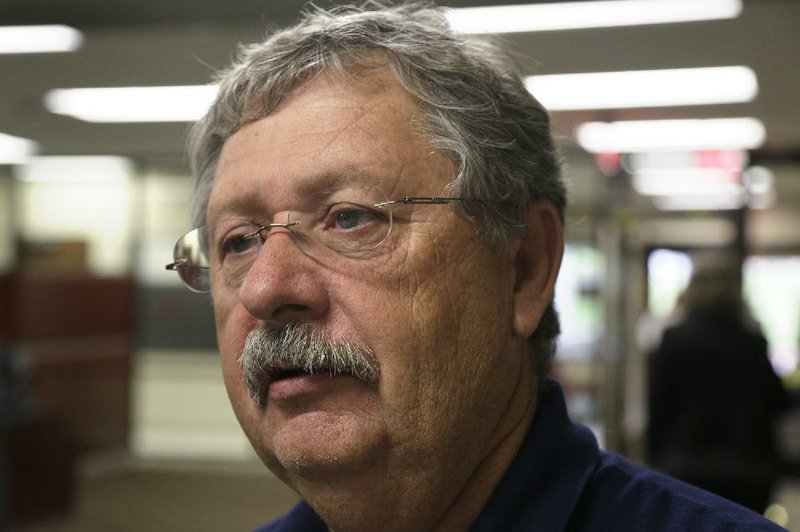A task force, looking to slow the growth of the state's inmate population, on Monday recommended establishing crisis units for offenders with mental illnesses, providing more training for law enforcement on helping such offenders, and uploading offender assessments into a statewide database.
The recommendations were unanimously approved by the task force in a voice vote as part of the annual report of the Behavioral Health Treatment Access Task Force, which was created by the Legislature last year to investigate how to ensure mentally ill offenders receive appropriate treatment. The recommendations will now go the Legislature for approval.
"It goes without saying that if you've committed a violent crime, you're going to be incarcerated, but there are a lot of people who are just there because there's no other place for them to be," Rep. Clarke Tucker, D-Little Rock and a chairman of the task force, said after the meeting.
As of Monday, the state had 17,484 inmates, including 922 who were being held in county jails because of a lack of space in state prisons. Those state prisoners in turn take up beds that could be occupied by county inmates.
Gov. Asa Hutchinson has proposed spending $5 million in the fiscal year that begins July 1 to establish three crisis stabilization centers that would provide treatment as an alternative to jail for mentally ill offenders.
The task force report recommends that the state eventually open eight such units, each with space for 16 offenders.
The task force also endorsed Hutchinson's proposal to increase annual funding for the Arkansas Law Enforcement Training Academy by $50,000 to provide crisis-intervention training for law enforcement officers.
It also recommended that county sheriff's offices use a common assessment tool to record information about inmates' mental health and substance abuse and make the assessments available through a state database.
[EMAIL UPDATES: Sign up for free breaking news alerts + daily emails of the day's top headlines]
The task force also endorsed a plan by Department of Human Services officials to provide Medicaid coverage for substance abuse treatment, and it recommended that Medicaid eligibility for inmates be suspended, rather than terminated, to help ensure inmates have coverage when they are released.
Human Services Department spokesman Brandi Hinkle said after the meeting that her department already works with prison officials to ensure offenders don't have gaps in coverage.
The task force's recommendations were among the policy options presented to the Legislative Criminal Justice Oversight Task Force in October by the Council of State Governments Justice Center, a New York-based policy group.
The criminal justice task force endorsed the recommendations. In addition to those recommended by the behavioral health task force, they include: hiring about 100 probation and parole officers at a cost of $41 million over six years and limiting how long parolees can spend in prison for certain types of parole violations.
The proposals have also been endorsed by the County Judges Association, the Arkansas Sheriff's Association and the Quorum Court Association of Arkansas, which represents county governments.
Benny Magness, chairman of the state Board of Corrections, said the proposals would likely help slow the growth of the state's inmate population, but won't eliminate the need for more prison space.
The prisons board earlier this year proposed spending $39.2 million to expand the North Central Unit in Calico Rock by 576 beds, but the project wasn't recommended by Hutchinson for funding.
Eliminating the need for more prison space would require a change in the state's crime rate or changes in sentencing laws, Magness said.
"I don't know that it's not a good idea to wait and see what our changes will do, but I do believe that our data shows we will still need more beds," he said.
A Section on 12/13/2016
